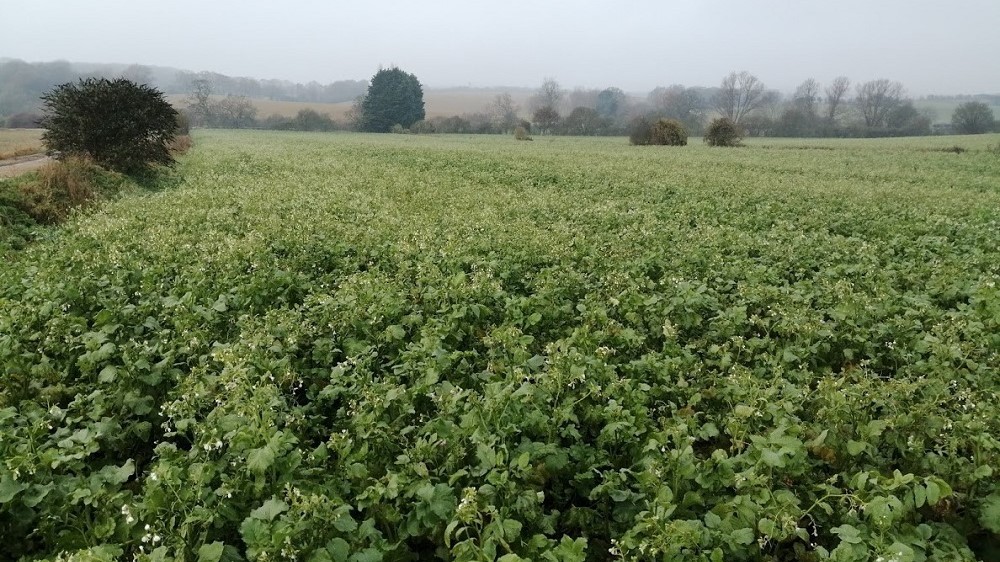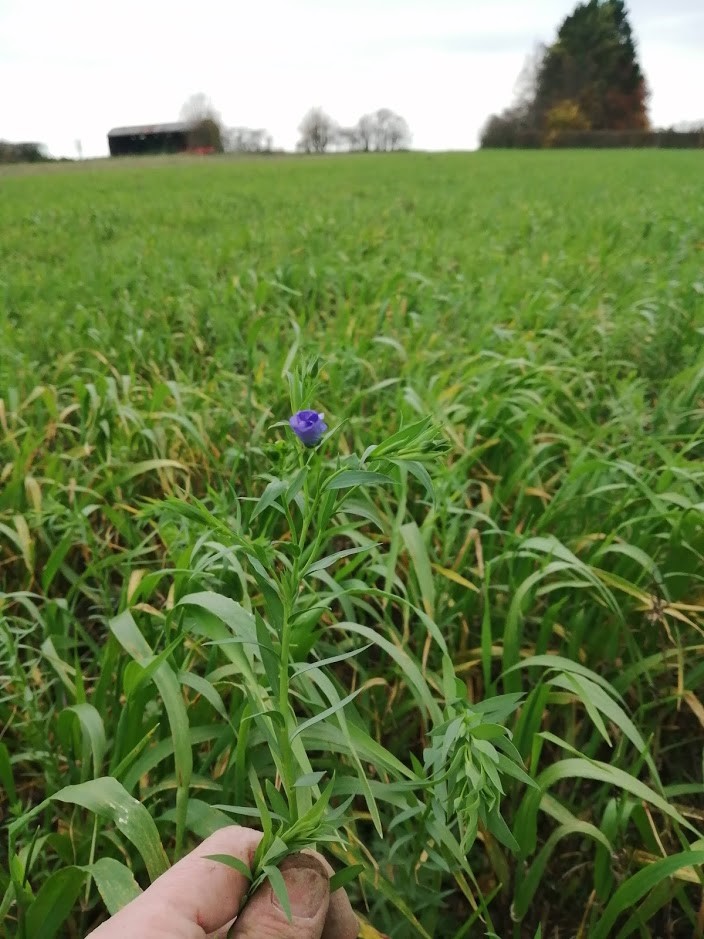Successful cover crops scheme expanded
Posted: 12 April 2021
 Together with Affinity Water, we're pleased to announce that our novel cover crops scheme has been a success again this year.
Together with Affinity Water, we're pleased to announce that our novel cover crops scheme has been a success again this year.
The joint initiative, launched last summer, captured 40 tonnes of nitrogen over 800 hectares which may otherwise have leached into the groundwater and rivers in the designated areas. The scheme is now to be repeated for a third successive year.

“All farmers involved in our 2020/21 cover crop scheme have successfully grown their cover crops, which have done a great job at protecting soils from erosion, reducing nitrate leaching and capturing carbon. This follows on from the success of the 2019 cover crop scheme.
“With species such as oil radish, Italian ryegrass, barley and oats being grown widely in addition to other species such as linseed, buckwheat and mustard providing colour, many of the fields across our catchments looked at bit different to normal this year.
“As well as providing aesthetic interest these cover crops can also benefit farmland birds and other species over winter by providing cover and diversity in the landscape.
“In total we estimate that the Affinity Water and Cambridge Water-funded cover crops captured 40 tonnes of nitrogen over 800 hectares which may have otherwise leached into the groundwaters and rivers in the target area.
“We will repeat the scheme for a third year this year which will expand into the upper parts of the Ivel, Hiz and Mimram catchments between Hitchin and Luton.”
Shaun Dowman Agricultural Advisor to Affinity Water.

“We are pleased to be working with Affinity Water again on our cover crops scheme in 2021/22.
"Cover crops play an important role in improving farm productivity and enhancing the natural environment. These crops, grown in the autumn/winter months between cash crops, are an excellent way to capture excess nitrate left in the soil. Without a cover crop, this nitrate has the potential to leach into the aquifer or into nearby rivers, increasing the nitrate concentration which would then require water treatment.
"Aside from the benefits to water quality, growing a cover crop can also help build organic matter in soils, protect them from erosion and can attract farmland birds and other wildlife to increase biodiversity.”
Jennifer Thomas, Catchment Advisor, Cambridge Water.
We will be working with Affinity Water in South Cambridgeshire and North Hertfordshire to fund the growing of cover crops through the EnTrade environmental trading platform.
There has been an increase in nitrate concentrations in several South Cambridgeshire and North Hertfordshire groundwater catchments. Cover crops can help mitigate this as well as providing other benefits to the soil and the environment.
The scheme's success comes despite COVID-19 (resulting in online remote contact only at the time of the auction) and the Farming and Wildlife Advisory Group East (FWAGE) helped by promoting the auction with the local farmers and delivering advice on growing the crops.
The three photographs show three cover crops being grown in 2020/21: Italian ryegrass (above), linseed and barley, and oil radish:


Entrade
Find out more about Entrade
Posted 12 April 2021

